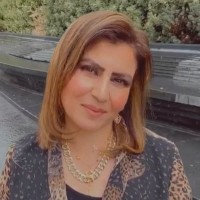 A Syrian refugee has voiced her dismay at the proposed closure of the course on which she trained as a journalist.
A Syrian refugee has voiced her dismay at the proposed closure of the course on which she trained as a journalist.
Freelance Ronahi Hasan, left, has called for bosses at the University of South Wales to reconsider their decision to scrap its undergraduate journalism course at the end of the current academic year after almost two decades.
HTFP previously reported how USW had defended the decision on the grounds that there was a “a decline in the number of students studying Journalism and Media Studies in the UK.”
Wales-wide independent website Nation.Cymru has also criticised the decision.
Writing for the site, Ronahi said: “When I applied to study at the University of South Wales in 2013, I was a Syrian refugee seeking sanctuary from the horrors of war. Now, as a British citizen, I reflect on my journey from displacement to empowerment.
“The conflict in Syria ignited a fervent desire within me to advocate for my people, to shed light on their plight, and to speak truth to power through the medium of journalism.
“As a freelance journalist and former student on the course, the news of its impending closure due to declining enrolment deeply troubles me.
“This decision strikes a personal chord, as this course not only honed my professional skills but also provided a sense of purpose and belonging in my tumultuous journey as a refugee.
“Despite challenges posed by dwindling student enrolment, I urge the university to reconsider its decision to scrap the journalism course. Instead of viewing declining numbers as an unbeatable obstacle, we should see it as an opportunity to innovate and adapt to changing circumstances.
“One potential solution is to transition the course into a remote learning format, allowing students from around the globe to participate without the constraints of geographical boundaries.
“By offering flexible online modules, the university can tap into a diverse pool of aspiring journalists who may lack the means to relocate or attend classes in person.
“Additionally, the university could explore financial assistance programs or scholarships specifically tailored to journalism students, thereby alleviating the burden of tuition fees for those facing economic hardships.
“By making the course more accessible and inclusive, we can ensure that aspiring journalists from all walks of life have the opportunity to pursue their passion and contribute to the field.”





 Follow HTFP on Twitter
Follow HTFP on Twitter